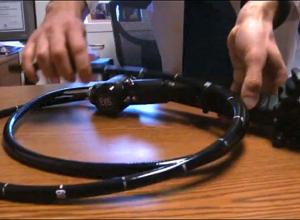Louisiana Primate Research Facility Worker Likely Exposed to Deadly Bacterium

According to the US Centers for Disease Control and Prevention (CDC), worker at a Louisiana primate research facility has likely been exposed to deadly bacterium stored in on-site laboratory.
It has been informed that previously this bacterium has sickened three monkeys. The Burkholderia pseudomallei, is a potentially deadly form of bacteria that is normally found in Southeast Asia and Northern Australia.
The bacterium is stored at a high-security laboratory at the Tulane National Primate Research Center near New Orleans. It is about half a mile from housing a veterinary clinic where many monkeys are kept.
Now, federal investigators are putting efforts to find out how it migrated from one place to the other. Study on this bacterium that being performed in order to find a vaccine has been stopped. It has been found by the test that worker had an amount of antibodies just at the threshold for a confirmed positive result.
The worker worked at the clinic where the infected monkeys had been treated. According to the CDC, there is need of more tests in order to find out whether the worker was exposed to the bacterium. Since late last year, eight monkeys at the facility have been found infected accidentally with or exposed to the bacterium.
It has been informed that the bacterium can cause a disease that is called melioidosis in humans and animals. It has wide range of symptoms which could be confused with other diseases such as tuberculosis or pneumonia.
A federal investigator who visited the facility in January also tested positive for being exposed to the bacteria but it is unclear that whether he was exposed this place or during a visit to an infected region.
“An infected person can be without symptoms for a long time and then the infection can suddenly come to the fore and create an illness”, said Dr. William Schaffner, an infectious disease expert at Vanderbilt University Medical Center.
You May Also Like
- Fifth Monkey Exposed to Deadly Bacteria Released from High-Security Lab: Test
- 16 People Tested Positive for Tuberculosis Exposure at Northern California High School
- TB blunder damages Sierra Providence Health Network’s reputation
- Carnival cruise ship health worker tests negative for Ebola virus
- Health Concerns Rise after Measles-Infected Person Dined At La Mediterranee Restaurant in Berkeley



